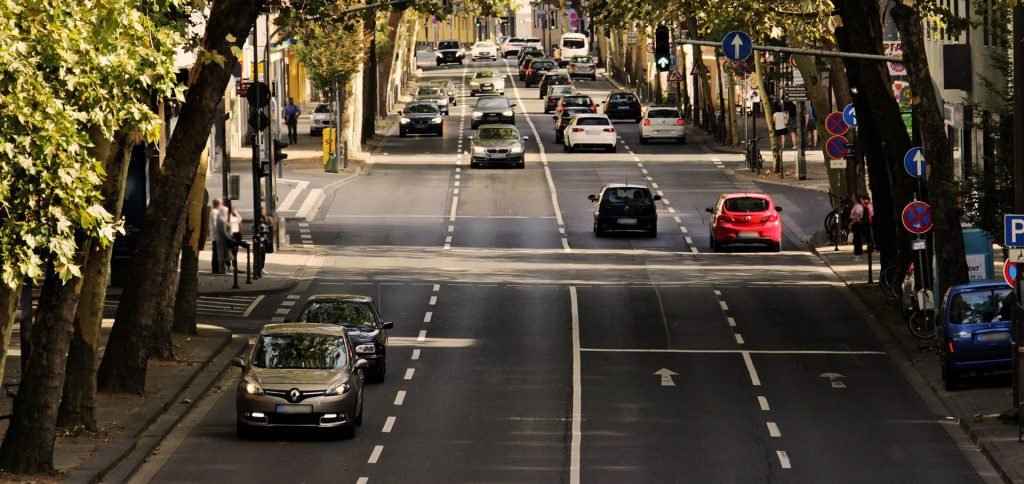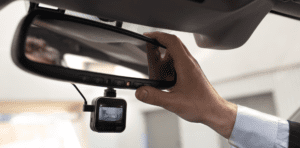Compare cheap car insurance
✔ Compare cheap car insurance quotes
✔ Over 110 insurance providers
✔ Get a quote in minutes
✔ Save up to £504*


- Which cars are in car insurance group 7?
- Why are cars in group 7 the cheapest?
- Are group 7 cars a good option for young drivers?
- Cars in group 7 include
- What insurance group would my electric/hybrid car be in?
- What insurance group would my classic car be in?
- What insurance group would my modified car be in?
- Compare car insurance
Car Insurance Group 7 – All you need to know.
Insurance companies use a variety of factors to determine the cost of car insurance premiums. These include personal factors such as the driver’s age, profession, and location, as well as factors related to the car, such as its make, model, and storage location.
One important factor is the car’s insurance group, which ranges from 1 to 50. Cars that are lower on the list are typically cheaper to insure, while those higher up are more expensive. If you’re driving a car that falls within insurance group 7, it’s likely to be one of the more affordable options on the market.
Which cars are in car insurance group 7?
Car insurance groups are assigned to vehicles based on several factors, including the car’s value, repair costs, and performance. Cars that fall into insurance group 7 are generally considered to be among the cheaper options when it comes to car insurance. Some of the cars that fall into this group include the Ford Ka, Kia Rio, and Suzuki Swift.
These cars are typically smaller and have less powerful engines, which makes them less expensive to repair and replace. They also tend to have lower performance levels, which means they are less likely to be involved in accidents or be stolen. Additionally, these cars are often considered to be less desirable to thieves, which can help keep insurance costs low.
Another factor that contributes to cars in group 7 being cheaper to insure is that they are usually less expensive to purchase than more high-end vehicles. This means that the car’s value is lower, which is reflected in the cost of the insurance.
In summary, cars in insurance group 7 are typically smaller, less powerful, and less expensive than other vehicles, which makes them a cost-effective option for drivers. They are a good choice for young drivers, students and people with a tight budget who are looking for an affordable car insurance.
Why are cars in group 7 the cheapest?
Cars in insurance group 7 are considered to be some of the cheapest to insure due to a combination of factors. The primary factor is the cost of the car itself. Cars in this group are typically smaller, less powerful, and have a lower value compared to those in higher groups. This means that they are cheaper to repair or replace in the event of an accident or theft. Additionally, cars in this group are less likely to be involved in high-speed accidents or targeted by thieves, making them a lower risk for insurers.
Other factors that contribute to the lower insurance premiums for cars in group 7 include the safety features of the car, such as anti-lock brakes and airbags, and the fuel efficiency of the car. Cars that are more fuel-efficient are considered to be cheaper to insure as they are less likely to cause environmental damage.
Overall, cars in insurance group 7 are considered to be an affordable option for drivers, particularly young drivers who may be looking for a cost-effective first car. They can be a great choice for those who are looking for a reliable and affordable vehicle that is also cheap to insure.
Are group 7 cars a good option for young drivers?
Group 7 cars are considered to be some of the cheapest to insure among all the car insurance groups. This is because the cars in this group are generally smaller, have less powerful engines, and are cheaper to repair and replace in the event of an accident. Additionally, these cars tend to have lower theft rates, which is another factor that insurers consider when determining insurance premiums.
Some popular examples of cars that fall into insurance group 7 include the Ford Ka, Volkswagen Polo, and the Toyota Yaris. These cars are popular among young drivers as they are affordable to purchase and maintain, and are considered to be reliable and efficient.
However, it’s worth noting that while group 7 cars can be a good option for young drivers, it’s important to keep in mind that there are many other factors that insurers consider when determining premiums. For example, a young driver with a history of accidents or traffic violations may end up paying more for insurance, even if they drive a car in group 7. It’s also worth noting that while group 7 cars may have lower insurance costs, they may not have the same level of safety features as higher-end cars.
Cars in group 7 include:
Some of the most popular cars found in insurance group 7 include:
- Aixam: 400 & 500 hatchback
- Chevrolet: Matiz
- Chrysler: Ypsilon
- Citroen: C1
- Citroen: Berlingo Multispace
- Dacia: Sandero Stepway
- Fiat: Punto
- Ford: Ka
- Ford: Tourneo Connect
- Honda: Civic hatchback
- Hyundai: i20 hatchback
- Kia: Picanto hatchback
- Nissan: Note
- Peugeot: 207 hatchback
- Renault: Clio hatchback
- SEAT: Ibiza
- Skoda: Fabia hatchback
- Smart: Fortwo Coupe
- Vauxhall: Astra hatchback
- Volkswagen: Golf hatchback
It is important to note that this list is not exhaustive and may vary depending on the specific make and model, as well as the year it was manufactured. Additionally, the insurance group of a car may also change depending on the trim level, engine size, and safety features of the vehicle. It is always recommended to check with your insurance provider for the specific group rating of your car.
What insurance group would my electric/hybrid car be in?
When it comes to insuring an electric or hybrid car, the insurance group it falls into can have a significant impact on the cost of your premium. Insurance groups are a way of categorising vehicles based on factors such as their value, performance, and safety features.
Electric cars, also known as EVs, are typically placed in a lower insurance group compared to their gasoline or diesel counterparts. This is because they are generally considered to be less powerful and less of a theft risk. Additionally, the battery and other electric components of an EV may be covered under the manufacturer’s warranty, which can also help to lower the cost of insurance.
Hybrid cars, which are powered by both an electric motor and a traditional gasoline engine, can fall into a wider range of insurance groups depending on the model. Some hybrids, such as the Toyota Prius, are considered to be low-performance vehicles and can be placed in a lower insurance group, while others, such as the BMW i8, may be considered to be high-performance vehicles and can be placed in a higher group.
It’s worth noting that some insurance companies may offer discounts for electric and hybrid cars, as they are considered to be more environmentally friendly and have lower emissions. Additionally, the location of charging stations and the availability of repair shops can also affect the cost of insuring an electric or hybrid car.
In conclusion, the insurance group of an electric or hybrid car can vary depending on the specific model and other factors. Electric cars are generally considered to be less powerful and less of a theft risk and therefore, tend to fall into lower insurance groups. While hybrid cars can fall into a wider range of insurance groups, depending on the model, some hybrids may be considered to be low-performance vehicles and can be placed in a lower insurance group, while others may be considered to be high-performance vehicles and placed in a higher group.
What insurance group would my classic car be in?
When it comes to insuring a classic car, the insurance group it falls into can have a significant impact on the cost of your premium. Classic cars are typically placed in a higher insurance group compared to modern vehicles. This is because they are considered to be more valuable, rare, and harder to find replacement parts. Additionally, classic cars may require more specialized and experienced mechanics to repair and maintain them.
It’s worth noting that some insurance companies may offer special policies for classic cars, which can provide cover for things like agreed value, mileage restrictions, and use for shows and events. Additionally, many classic car owners choose to insure their vehicles under a separate classic car policy which can provide specialised cover and protection.
In conclusion, classic cars are typically placed in a higher insurance group compared to modern vehicles, due to their value, rarity, and specialized maintenance requirements. Many insurance companies offer specialized policies for classic cars, which can provide cover for things like agreed value, mileage restrictions, and use for shows and events.
What insurance group would my modified car be in?
When it comes to insuring a modified car, the insurance group it falls into can have a significant impact on the cost of your premium. Modified cars are typically placed in higher insurance groups as they are considered to be riskier and more expensive to repair. The modifications such as engine tuning, suspension lowering, and body kits, can increase the car’s performance and value, but also make them more likely to be involved in accidents and more expensive to fix.
It’s worth noting that some insurance companies may not cover certain types of modifications, or may require additional documentation or inspections to ensure that the modifications are safe and meet legal requirements. In some cases, modified cars may also require specialized insurance policies that provide cover for specific modifications.
In conclusion, modified cars are typically placed in higher insurance groups as they are considered to be riskier and more expensive to repair. Some insurance companies may not cover certain types of modifications or may require additional documentation or inspections. In some cases, modified cars may also require specialized insurance policies that provide cover for specific modifications.
Compare car insurance
Comparoo is a comparison website that allows you to compare car insurance quotes from over 110 providers. By using Comparoo, you can find the cheapest car insurance policy that suits your needs. With just a few clicks, you can compare policies from different providers and find the best deal.
Comparoo allows you to compare policies based on different factors such as cover, deductibles, and discounts. This means that you can find a policy that fits your budget and your cover needs.
On average, Comparoo customers can save up to £504 by comparing car insurance quotes. This is a significant saving that can help you to lower your car insurance costs and keep more money in your pocket.
If you’re looking for cheap car insurance, Comparoo is a great resource to help you find the best deal. With over 110 providers to choose from, you’re sure to find a policy that fits your needs and budget.










